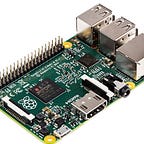In today’s fast-paced business environment, making informed decisions is crucial for success. One of the most effective ways to ensure that your decisions are based on solid ground is to adopt a data-driven approach. In this article, we will explore what it means to be data-driven, the benefits of this approach, and how business leaders can implement data-driven decision-making in their organizations.
What is Data-Driven Decision Making?
Data-Driven Decision Making (DDDM) is the process of making organizational decisions based on actual data rather than intuition, personal experience, or observation. This approach ensures that choices and strategies are informed by concrete evidence that can be analyzed and measured. By using data as the foundation for decisions, businesses can minimize risks and increase the likelihood of favorable outcomes.
Benefits of Data-Driven Decision Making
Adopting a data-driven approach offers numerous benefits:
- Improved Accuracy: Decisions based on data are typically more accurate and reliable.
- Enhanced Efficiency: Data-driven decisions often streamline processes and resource allocation, leading to increased efficiency.
- Increased Accountability: Data provides a clear basis for decision-making, making it easier to track outcomes and hold individuals accountable.
